'I've lost my eldest son... for £10 and an iPhone'
- Published
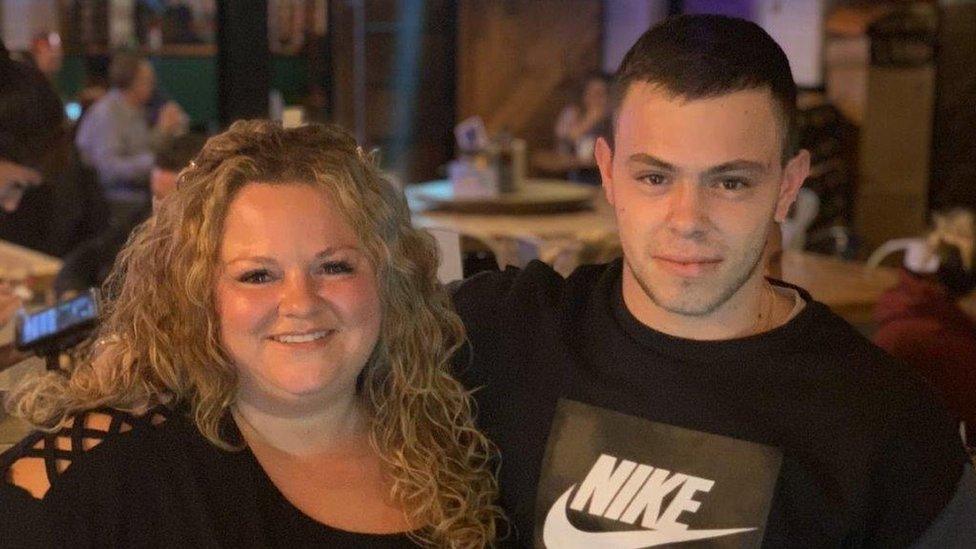
Charlotte Marshall says losing her son Reece has made every day a living nightmare
In the early hours of 1 February 2019, Charlotte Marshall received a phone call that would change her life.
"I knew it was going to be something bad, because nobody ever calls me at that time," she says.
It was her ex-husband with some terrible news about their 23-year-old son, Reece.
"He said, 'He's dead,' and I thought that it was a mistake," she says.
"He had a tattoo saying, 'Mom' and my date of birth and I said, 'Can you ask them to see?' and he said that they'd checked, that it's him."
Baseball bat
Reece Ottaway was a keen BMX biker who often posted online videos of himself doing stunts.
"Everybody loved him, so I couldn't believe that somebody would want to hurt him," says his mum.
But he moved in a very dangerous world. Reece was a cannabis dealer, in Northampton.
Five men, intent on robbery, had smashed their way into Reece's flat, armed with a machete, a BB gun and a baseball bat.
They inflicted more than 20 wounds on him and left him to die at the scene. They stole two mobile phones and £10 in cash.
Reece's story is not uncommon, according to data gathered by BBC News, which suggests the drugs trade, along with excessive drug and alcohol use, are major factors in killings across the UK.
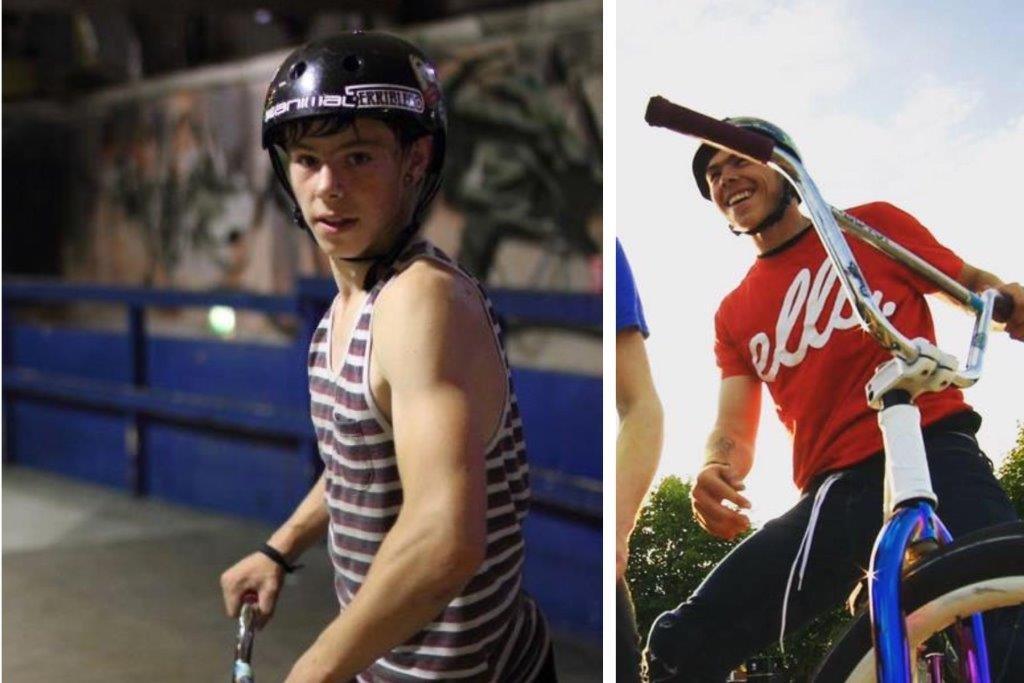
Reece Ottaway was a keen BMX biker
BBC News has collected details of every murder and manslaughter carried out in the past five years.
Nearly a year on. Charlotte feels "like I'm just waking up into a nightmare every day".
"I don't think he was cut out for that kind of lifestyle. He wasn't in gangs," she says. "He just wanted to make a bit of money."
Although she made it known she disapproved, Charlotte learned not to talk to her son about his dealing because she feared losing him. Tragically, it happened anyway.
Four of the men who broke into his flat were later convicted of murder and given life sentences, while another was found guilty of manslaughter and jailed for 16 years.
"They didn't gain anything from murdering Reece," Charlotte says.
"All they've done is ended up in prison for a very, very long time… and I've have lost my eldest son, and for what? For £10 and an iPhone. It's just ridiculous."
Recce Ottaway's sister reads part of the impact statement which she delivered in court.
Turf wars
Reece Ottaway was one of 650 people killed in the UK in 2019. Although that's the lowest number since 2016, drugs and alcohol remain a major driver in homicides. And nowhere is that more obvious than London.
"Drug dealing is inextricably linked with a high proportion of the violence seen on our streets," says Cdr Jane Connors, of the Metropolitan Police.
Killings have reached levels not seen in the capital since 2007.
Several involved the terrifying spectacle of drug turf wars being played out by young men wielding large knives in public places.
Two men and three teenage boys will be sentenced later this month after being convicted of the murder of Kamali Gabbidon-Lynck, 19, who bled to death after being stabbed in a north London hair salon.
It was a gangland killing described in court as "reminiscent of a Hollywood film" with terrified passers-by, including mothers pushing buggies, caught up in the mayhem.
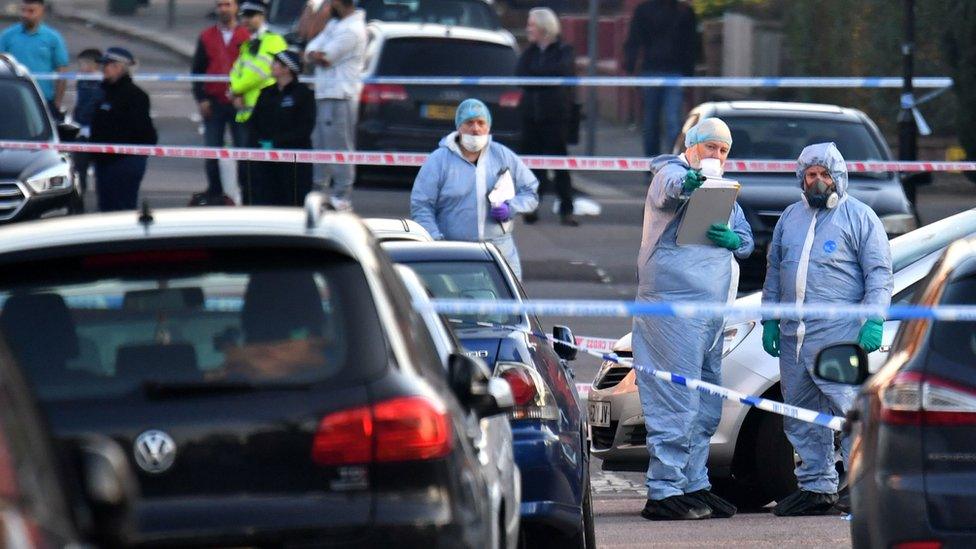
Members of the public witnessed the attack on Kamali Gabbidon-Lynck unfold on their High Street
Although such cases naturally grab the headlines, the violence generated by the market in illicit drugs doesn't tell the whole story.
BBC News travelled to dozens of murder trials across the country as part of an award-winning project to track the first 100 homicides in 2019.
In about half of them, drugs and alcohol were a factor in sparking violence.
But the killings were actually more likely to be the result of bad decisions taken by people under the influence of excessive alcohol or drugs than turf wars.
Another Northampton killing in the same month as Reece Ottaway's is a good illustration.
Bradley Matcham was out with friends, celebrating a promotion at work, when he had a row with a stranger, Arthur Billings, by a bench outside a McDonald's in the town centre.
A scuffle ensued. And just as things seemed to be settling down, Matcham turned to the side and Billings, 19, punched him once in the head. His legs buckled and he fell to the ground. The 24-year-old never regained consciousness and died nine days later in Coventry Hospital.
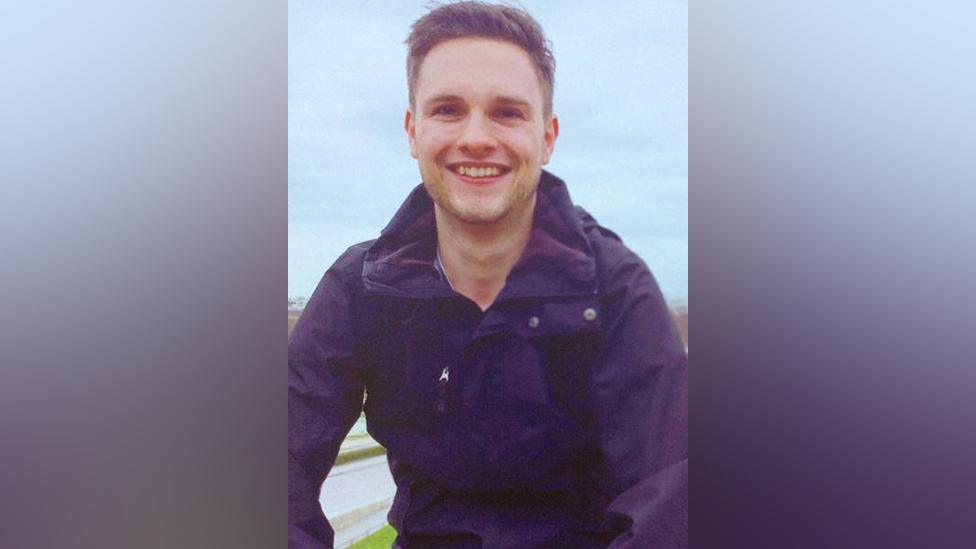
Bradley Matcham's mother, Sarah, said "her heart was ripped out when he died"
"My son Bradley became a case number but he should have become a fiance, a husband, a father and possibly a grandfather," Bradley's tearful mother, Susan, told a sentencing hearing.
"All I have left are visits to the cemetery to talk to him for the rest of my life. The tears I shed are of unspeakable love."
Billings admitted manslaughter and was jailed for four years. His was a stupid, terrible act carried out under the influence of too much alcohol.
It's a depressing pattern often repeated.
According to a study of killings in the two years to March 2018, by the Office for National Statistics, external, 20% of homicide victims and suspects were under the influence of alcohol,.
The role played by drugs is more pernicious, according to the same study:
more than one in three homicide suspects were known drug users
one in five were dealers
nearly one in four victims were known drugs dealers
"Alcohol and drugs cause people to do things they would not necessarily do without them and we often see that in a city or town centre," says Assistant Chief Constable Ian Critchley, of Merseyside Police.
"When people watch back on videos when they are being interviewed and now in custody, and we show them what they've done, they're appalled by their behaviour… one punch or one stab injury can cause the loss of life for somebody. It devastates families and communities."
'Hard-edged approach'
Homicides in Merseyside fell by more than a half in 2019.
And ACC Critchley credits this to "a hard-edged approach to people that think they can deal drugs or use weapons on our streets" mixed with measures "stopping young people getting into crime in the first place".
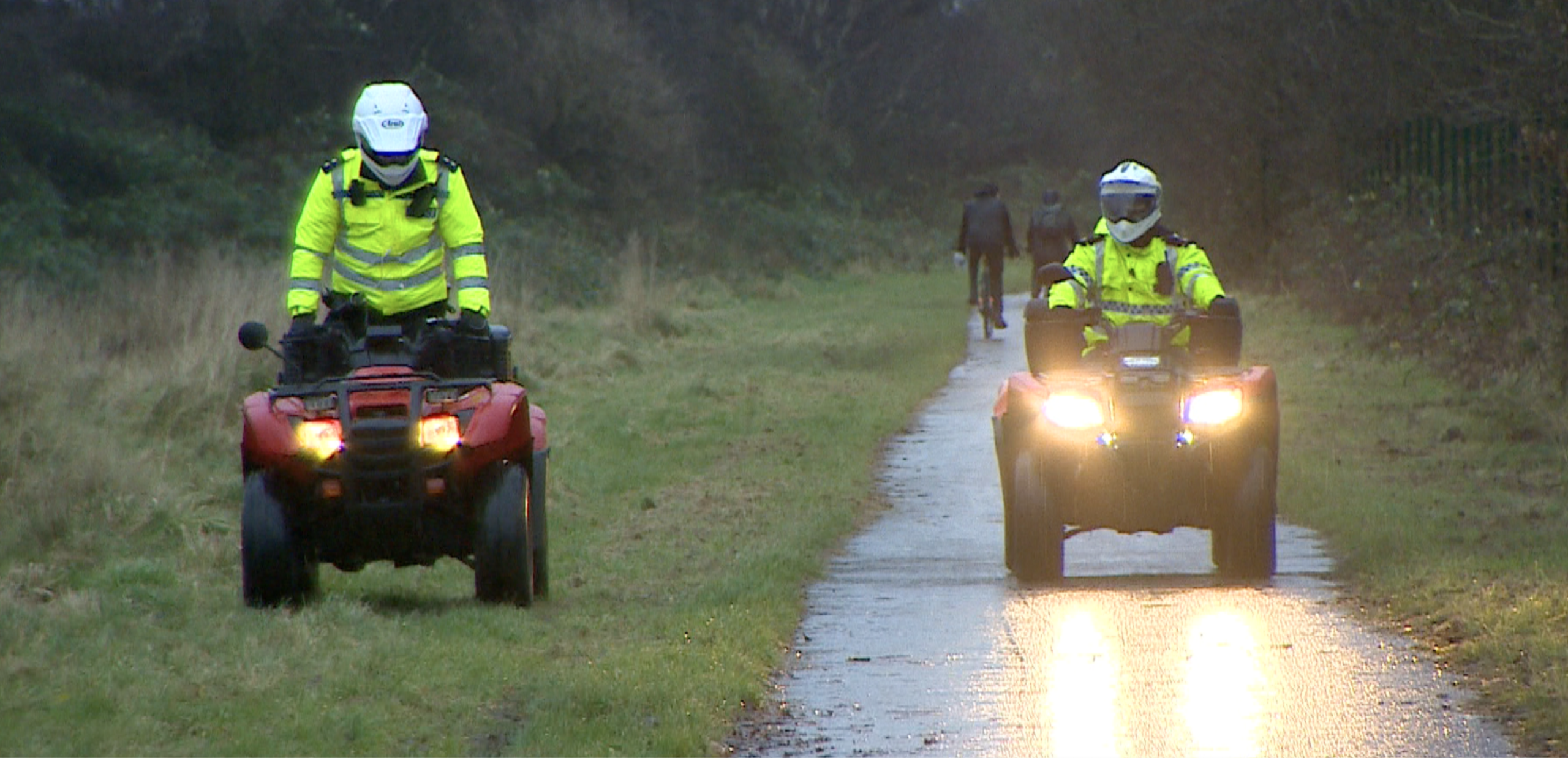
Merseyside police on quad bikes patrol areas where gangs stash weapons and drugs
For him, the controversial tactic of stop and search "is one of, if not the, most important power that the police have in its fight to stop serious, organised and serious violence".
But, he says: "It must be used ethically and must be used in communities that support it."
ACC Critchley points to recent successes in Speke, a town that just two years ago had big problems with drug gangs and firearms.
"We've put over 27 people behind bars," he says.
The knock-on effect is "money has been put back into community groups".
"And those decent, hard-working people within Speke effectively now own the streets.
"They are responsible for what's taking place there."
Preventing people not necessarily involved in gang crime from turning to violence when they are under the influence of drugs and alcohol, however, is likely to prove a more difficult problem for police forces to crack.